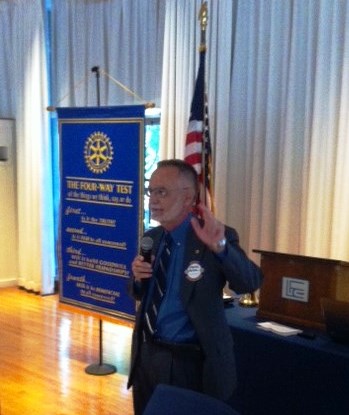Volume vs. Value: Making the Case for Health Care Reform

Steven Potsic, MD, MPH, FACPM, spoke from a public health perspective about the health care system in the U.S. Although we are fortunate to have outstanding medical care available, there are vast inequities in its accessibility that translate to differences in survival and life expectancy. The World Health Organization ranks the U.S. woefully low in measures of overall quality of the health care system.
Dr. Potsic reported that among the practices driving up health care costs is excessive ordering of tests. The American College of Physicians has found that 30% of medical tests ordered are unneeded and can even cause harm. Physician and hospital revenues are based on volume - the number of tests and procedures they perform - not value, as measured by patient outcomes.
In addition, patients have no way to evaluate costs and benefits of a procedure or test, or to compare prices between institutions, because the cost to the patient isn't known until AFTER the test or procedure is performed and submitted to the insurance company. Patients without insurance pay the most because they don't have the bargaining power that an insurer has.
During his career, Dr. Potsic was the Principal U.S. Public Health Service official in the midwest region; represented the Assistant Secretary for Health and the Surgeon General on matters of health and science; was in charge of the federal public health programs including emergency planning, response, and bioterrorism; and had a top-level security clearance.
Dr. Potsic is a licensed physician with a master's degree from the University of Michigan in Maternal and Child Health and Epidemiology, is clinically trained in Pediatrics, and is board certified in Preventive Medicine. He has had academic appointments at the University of Michigan, Columbia University in New York, the University of Illinois, and the University of Kansas. He has practiced medicine in Michigan, New York, and Kansas as well as in Illinois.